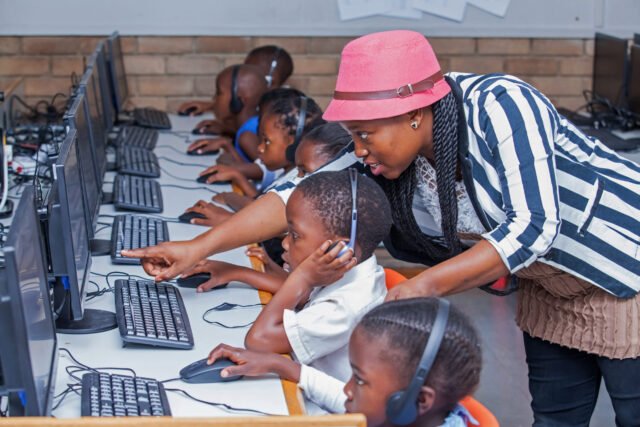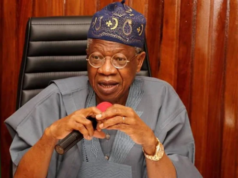When some people think of “education innovation,” they may picture Silicon Valley or Scandinavian classrooms. But Africa—despite its challenges—has become a hub of ingenious, scalable solutions tailor-made for its diverse contexts. From Malawi’s adaptive learning tablets to Tanzania’s home-grown educational cartoons, innovation is thriving.
In Malawi, a pilot programme led by UK nonprofit Onebillion has distributed interactive tablets to students in the Mzimba district. The tablets offer lessons in local Chichewa and English, adjusting difficulty according to each child’s ability. The results are compelling: in just over a year, pupils gained an additional 4.2 months of literacy and improved numeracy, with economic projections suggesting such learning could boost a child’s lifetime earnings by an estimated $16,000 for every dollar invested, according to the Financial Times.
Meanwhile, in Tanzania, the social enterprise Ubongo produces educational cartoons—Ubongo Kids and Akili and Me—that reach millions weekly across several African countries. Research indicates that children exposed to these shows exhibit significant improvements in numeracy, literacy, and socio-emotional development.
In Nigeria, Afrilearn, an ed-tech startup founded in 2019, offers animated video lessons, exam practice, coding tutorials, and personalised dashboards. It supports students preparing for national exams such as WAEC, JAMB, NECO, and BE CE—turning extreme competition into opportunity. And KEY Academy, also in Nigeria, bets on project-based learning and real-world problem solving rather than rote memorisation. Founded in Lagos, this school earned a place among the top-10 finalists for the World’s Best School Prize for Innovation in 2025.
These are not isolated cases. Across the continent, initiatives like Kenya’s DigiSchool, Ghana’s School-in-a-Box, South Africa’s Bridge the Gap digital centres, and Senegal’s bilingual education programmes are reshaping what learning looks like—making it accessible, contextually relevant, and resilient.
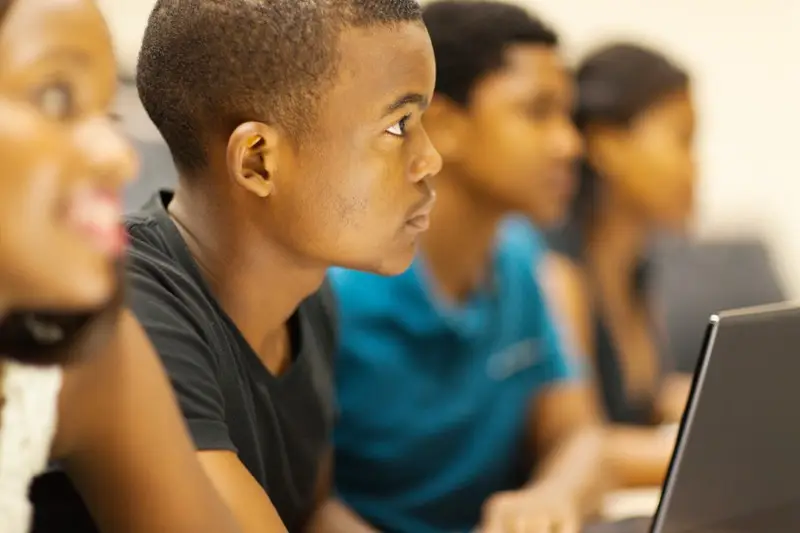
Table of Contents
Adaptation in the Face of Adversity
What sets African education innovation apart is ingenuity born from necessity—frugal, effective solutions emerging from real constraints.
Take Eswatini during COVID-19: with much of the population living below the poverty line, the government repurposed printing presses to distribute exercise booklets via newspapers and broadcast lessons on radio and TV while ensuring subsidised internet access. Simple, but it worked—and worked at scale.
Malawi’s tablets are solar-powered to handle energy shortages, and teachers welcome them: freed from high student-teacher ratios, they can focus on guiding rather than repeating lessons. In Zimbabwe, the Ruzivo Smart Learning platform combines interactive digital tools with local content to boost literacy in underserved communities. These are solutions that not only cope with adversity but turn it into an opportunity.
Generative thinking among students also reflects this spirit. A high-school team from Gwani Ibrahim Dan Hajja Academy in Nigeria designed a solar dryer for smallholder farmers, winning the Zayed Sustainability Prize for Sub-Saharan Africa—proof that innovation isn’t reserved for universities alone.
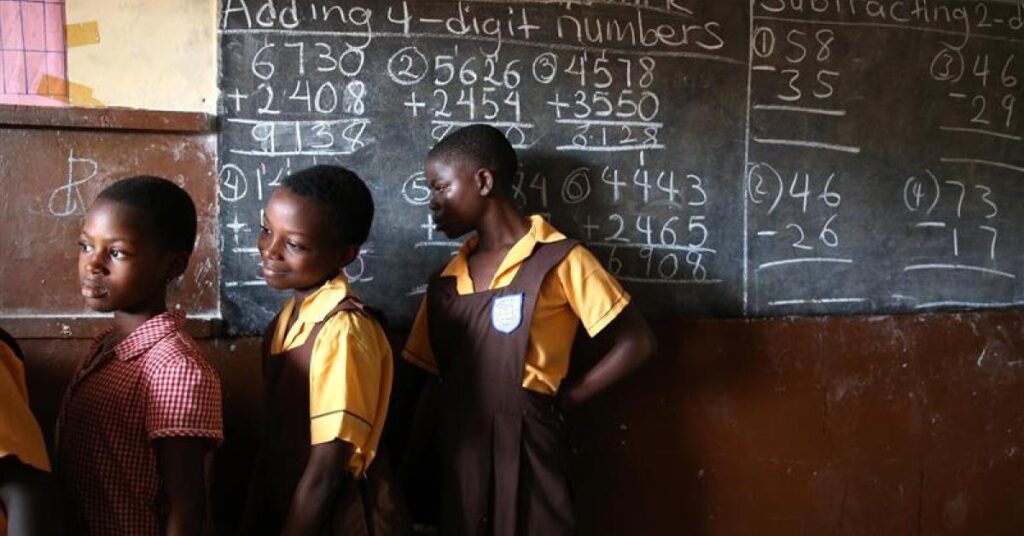
Building Ecosystems, Not Just Tools
What makes African education innovation truly promising is the ecosystem that supports it—from policy and partnerships to community-driven adaptations.
The African Union, for example, has prioritised digital education through its Digital Transformation Strategy (2020–2030), while organisations like UNESCO and UNICEF back low-cost digital learning tools across the continent. The World Economic Forum emphasises ecosystem-driven approaches: forming cross-sector partnerships between governments, EdTech startups, employers, and schools to take innovation from pilot to mainstream.
In Eastern Africa, the dSkills@EA project, spearheaded by the Inter-University Council for East Africa with GIZ support, is now graduating university staff in incubation leadership and digital skills—fostering capacity to deliver technology-driven education sustainably.
At the grassroots level, collaborative initiatives like Eneza Education provide SMS and mobile learning across multiple countries, while the African Virtual University expands access to higher education through online platforms—particularly in places where universities are rare.
In South Africa, the African Storybook initiative offers thousands of picture-storybooks in dozens of African languages, enabling educators and communities to create, translate, and localise early reading materials—addressing the scarcity of children’s books in mother-tongue languages. That’s empowerment, not importation.
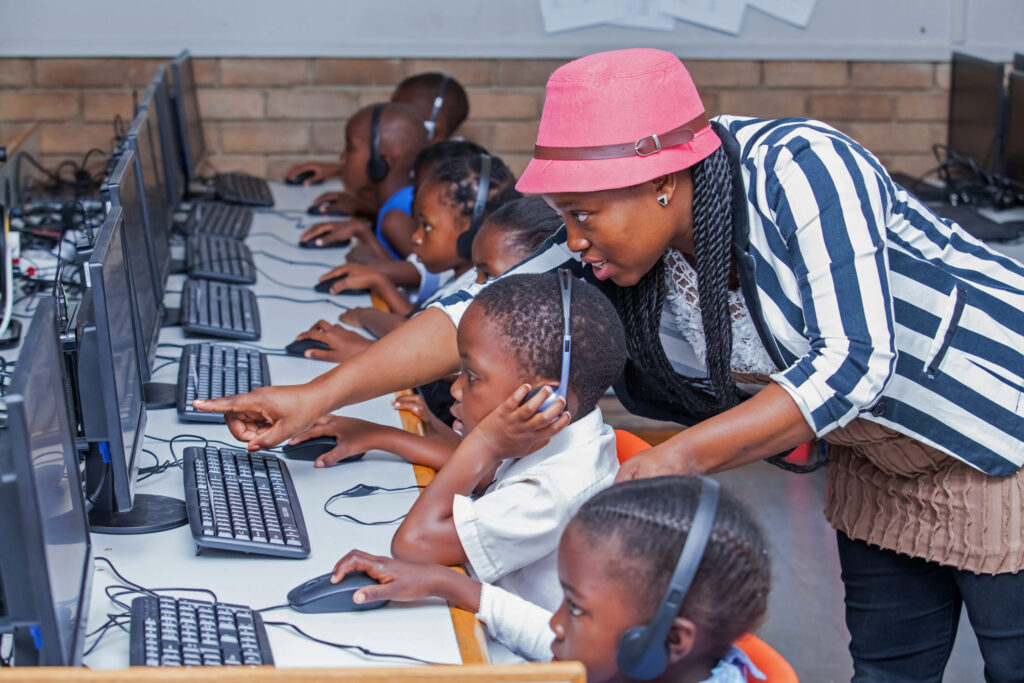
Why the World Should Pay Attention
Africa’s unique challenges—youthful demographics, infrastructure gaps, linguistic diversity—have catalysed bold, scalable, and context-sensitive approaches to learning. These are innovations global educators and policymakers can learn from.
- Cost-effectiveness is remarkable: Malawi’s tablet programme delivers a reported $106 social return for each $1 invested.
- Local culture and relevance matter. Ubongo cartoons and African Storybook content speak in learners’ languages and contexts—building engagement and comprehension.
- Inclusivity is baked into the system. Senegal’s integration of deaf and hard-of-hearing learners into mainstream schools shows educational access can be broadened with ingenuity and will.
- Scalable models are emerging. From SMS-based learning like Eneza, to AI tutors like Kwame for Science (used by 750 learners across 32 countries), Africa’s education tech ecosystem is demonstrably agile and adaptive.
These aren’t one-off experiments—they’re evidence that the future of inclusive, resilient, and affordable education may be shaped in Africa.
Join Our Social Media Channels:
WhatsApp: NaijaEyes
Facebook: NaijaEyes
Twitter: NaijaEyes
Instagram: NaijaEyes
TikTok: NaijaEyes
READ THE LATEST EDUCATION NEWS


